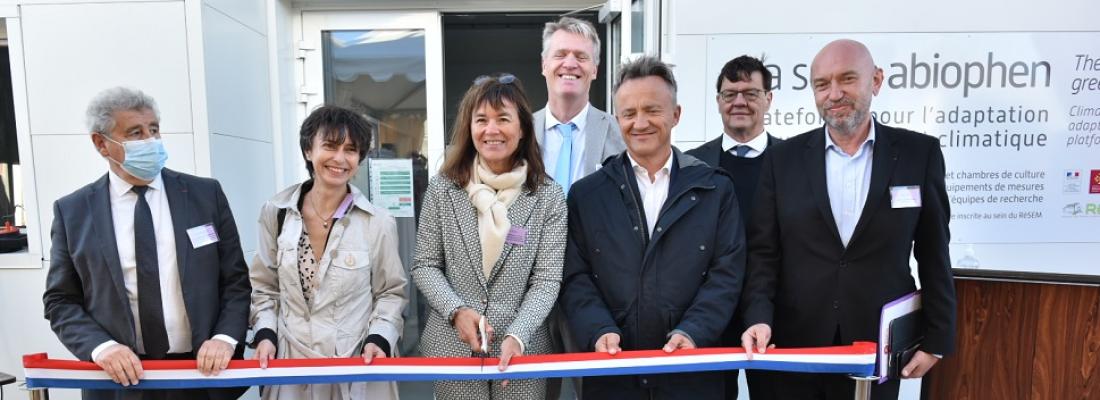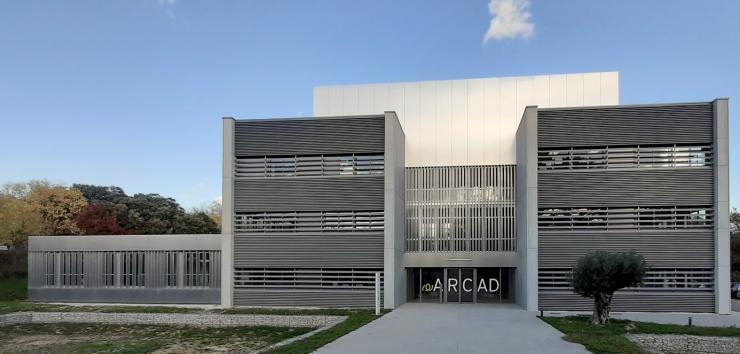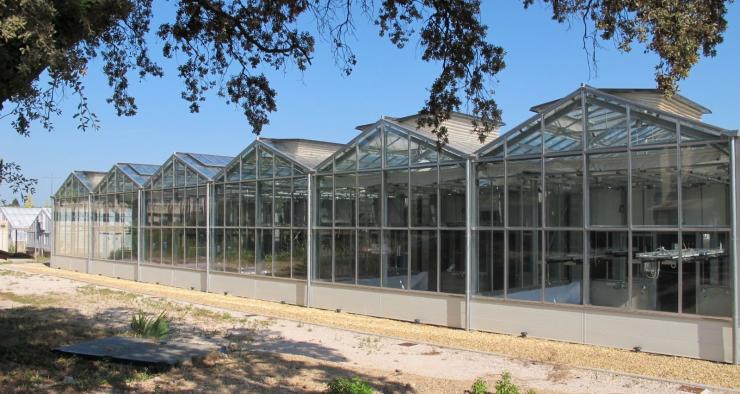Agroecology Reading time 3 min
Conserving agrobiodiversity to adapt crops to climate change: inauguration of two major facilities
Published on 06 October 2021

ARCAD provides Montpellier with a world-class centre dedicated to the conservation and study of Mediterranean and tropical crop genetic resources. The Agropolis Resource Centre for Crop Conservation, Adaptation and Diversity (ARCAD), hosted by INRAE, brings together the main collections of crop genetic resources from CIRAD, IRD and INRAE in Montpellier. ARCAD is the first French crop conservation “bank”, and holds some 50 000 samples (vines, maize, Medicagol, sorghum, durum wheat, rice, millet, cotton, fonio, groundnuts, cocoa, coffee, forest trees, etc.), in the form of seeds or in vitro plants.
ARCAD: conserving and managing the genetic diversity of tropical and Mediterranean plants
The centre is built in the form of an H around the seed conservation platform, at the heart of which is a robot stacker that is the only one in Europe. This is surrounded by three technical platforms (genotyping-sequencing, seed phenotyping, cryoconservation) equipped with the latest technologies to conserve and study this genetic diversity.
Studying the diversity of crops and their wild relatives is essential in a context of globalisation and global change. Certain heirloom or wild varieties, which are sometimes endangered, may be less sensitive to climate conditions or to the emerging diseases and plant pests that are spreading throughout the world. They can also be used as parents of new varieties that are better suited to these new contexts.
Moreover, growing a range of different species and varieties is a guarantee of resilience, especially for family farms, which provide more than half of the world’s agricultural production. This contributes to food and nutrition security. Finally, conserving, studying and disseminating this diversity by articulating the different modes of conservation in a complementary manner (in the field with farmers or in centres such as ARCAD) and by recognising the different processes and actors involved in the creation of diversity (farmers, researchers, plant breeders) are key to successful food and agroecological transitions at the global level.

AbioPhen: testing varieties adapted to future climate conditions
CIRAD’s AbioPhen greenhouses, which are close to the ARCAD centre, are aimed at furthering research on adaptation to climate change in certain crops, such as rice, and subsequently examining in detail the mechanisms at work and identifying associated genetic traits. Climate conditions can all be controlled (light, temperature, humidity) and CO2 can be increased up to four times the atmospheric level, enabling the greenhouses to simulate future climates: higher temperatures and atmospheric CO2 levels, or drier air. These high-tech greenhouses will be used to study the behaviour of new varieties, resulting from controlled crosses or from new associations of varieties or species, in the climate conditions of the coming decades.

Two facilities financed by the Contrat de Plan Etat-Région (CPER 2015-2020)
The ARCAD centre (Agropolis Resource Centre for Crop Conservation, Adaptation and Diversity) was built in the framework of the Contrat de Plan Etat-Région for a total amount of 10.4 million euros, with financing provided by the Regional Council (6.5 million euros and provision of land) and Montpellier Méditerranée Métropole (1 million euros), and co-financing provided by partner scientific institutes (2.9 million euros): INRAE, CIRAD, Institut Agro and IRD. Bringing together 13 research units, around 100 scientists specialising in genetic resources, as well as training and hospitality facilities (in particular for the countries of the global South), this new centre strengthens the scientific dynamics of the “Feed” pillar of the MUSE I-SITE (University of Montpellier) and its international visibility.
The AbioPhen greenhouses were financed by the Contrat de Plan Etat-Région (3 million euros), with 1.3 million euros provided by the Regional Council and 1 million euros by the French State) in the context of RéSEM (Montpellier network of experimental greenhouses), with co-financing provided by CIRAD (700 000 euros).
The architectural design of ARCAD and AbioPhen took account of environmental indicators, such as the management of water and waste, the use of low-impact materials, and energy efficiency.
